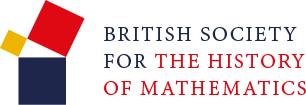Teaching the History of Mathematics: Challenges and Opportunities
Teaching the History of Mathematics: Challenges and Opportunities
Now that the summer session has mostly wrapped up at Cornell, I wanted to take a moment to reflect on my experiences teaching the history of science and mathematics. I recently finished teaching a 3-week course called “Science, Technology, and Politics,” a version of which I also taught last summer. The course this year was different in many ways, including its suddenly online format, yet much was also the same. Many students struggled to work through the same kinds of questions and analyses that challenged last year’s students as well. In particular, many (impressively thoughtful and engaged) students seemed to have a hard time moving beyond a simplified narrative of “progress” that has been embedded into their conceptions of history. No matter how much time we spent discussing the socially constructed features of science, technology, power, and progress, they still seem keen to translate nuanced challenges into straightforward solutions: “We just need better science! New technologies! More progress!” Their ideas about history were often confined to a straightforward, linear progression, and it was an ongoing challenge to encourage them to think otherwise.
As my colleague in the history department, Sean Cosgrove, has written, high school students in the United States are often taught to view history through a simplified narrative of progress. In an article currently under review, Cosgrove reflects on his own experiences teaching a writing seminar at Cornell about the history of violence in the United States. Throughout the semester, Cosgrove worked with his students to understand the election of Donald Trump not as an aberration or deviation from the progressive history of the United States but rather as part of a longstanding, multilayered history of racism, misogyny, homophobia, and xenophobia. Cosgrove's goal was to introduce students to many of the challenges, failures, contradictions, and compromises that were central to civil rights, women's liberation, and other social justice movements. His goal, in other words, was to transform students' simplistic ideas of progress into the ability to think historically.
As a historian of both the United States and mathematics, adding nuance to the narrative of progress and encouraging students to think historically has, in many ways, been the focus of my teaching over the past five years. In the writing seminar I teach, called “Knowledge, Power, and Mathematics,” I often work with students who are surprised to find, first of all, that mathematics has a history, and, second of all, that that history has not just been a steady march through time. Throughout the course, students read about and discuss various social, cultural, and political dynamics tied to the production of mathematical knowledge. For students who have been inundated with textbooks, problem sets, and standardized tests, this is often a completely new way of thinking about mathematics. A broader history of the field can offer crucial points of access for students who may have otherwise become discouraged by what often seems like a disconnect between textbook mathematics and questions of human concern. Nonetheless, many students find it difficult to move past their preconceived notions about mathematics as a linear progression towards truth.
There is an active SoTL (Scholarship of Teaching and Learning) community that writes about and discusses the teaching of American History from elementary through post-secondary education. It would be great to have some of these same kinds of conversations about pedagogy and the history of mathematics. What kinds of lessons and readings have worked well for different courses? What kinds of activities and assignments encourage students to situate the production of mathematics in a particular time and place? What kinds strategies and approaches might help students move away from reciting simplified narratives toward analyzing historical nuances? As a postdoctoral fellow this coming year at the Cornell Society for the Humanities, I hope to create a (virtual) space for and enroll others in these kinds of pedagogical conversations. Stay tuned!
